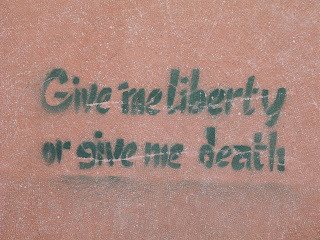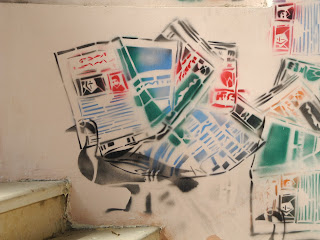Zahra Haider, the widow of one of the men killed by CIA contractor Raymond Davis in January of 2011 was killed by her father today. Her husband, Faizan, was killed when Davis opened fire in downtown Lahore. Davis claimed he acted in self defense and invoked diplomatic immunity, sparking an intense backlash that plunged United States-Pakistani ties into crisis.
Everyone knows this story. But what happened to the families the men killed by Davis left behind? How would society view them? How would they cope?
The fate of the two wives speaks volumes. Zahra and her mother, Nabeela, were killed by Zahra's father. Family sources allege Zahra's father was upset Zahra secretly remarried according to her wishes. He had been pushing her to marry Faizan's brother. Nabeela supported her daughter.
Shumaila Kanwal, the wife of Davis' other victim, Faheem Ahmed, took her own life ten days after the incident by swallowing rat poison. He was distressed at the prospect her husband's killer would go free.
After Kanwal was found, she was taken to a hospital.
"The killer is being treated as a guest at the police station. I need justice and blood for the blood of my husband," she told reporters who gathered at the hospital.
"I want blood for blood. The way my husband was shot, his killer should be shot in the same fashion. I do not expect any justice from this government. That is why I want to kill myself."
The fate of the two women speaks to the issues facing Pakistan today, especially the spread of violence throughout the country, violence against women in particular, male-dominated social norms, and a convoluted and complicated relationship with the United States. Zahra bravely followed her heart and her mother, equally bravely, defied her husband to ensure her daughter's happiness. I will preface this by saying I don't know the intricacies of Pakistani society, but I am of the impression it can be male-dominated. Arranged marriages--in and of itself not necessarily a bad thing--are prevalent. What daddy says, goes.
Shumaila, distraught with her government's illegitimacy, lack of justice, and cozy ties with the United States chose to end her own life rather than live in the wake of the incident. She perhaps knew what would follow: Davis would be let off after intense United States pressure and she would lose control of her life and narrative.
I don't want this to be a woe-is-women story. Instead, I wanted to highlight the overlooked repercussions of these incidents. We may have moved on, but there are many who are left behind.
UPDATE: Reports say Zahra and Nabeela's deaths were fueled by a dispute over Faizan's blood money.
Everyone knows this story. But what happened to the families the men killed by Davis left behind? How would society view them? How would they cope?
The fate of the two wives speaks volumes. Zahra and her mother, Nabeela, were killed by Zahra's father. Family sources allege Zahra's father was upset Zahra secretly remarried according to her wishes. He had been pushing her to marry Faizan's brother. Nabeela supported her daughter.
 |
| Zahra (I think--Google is an inexact science). Photo: The National News [Pakistan] |
 |
| The nurse and unidentified relatives of Shumaila Kanwal stand beside her at a hospital in Faisalabad. Photo: AP |
"The killer is being treated as a guest at the police station. I need justice and blood for the blood of my husband," she told reporters who gathered at the hospital.
"I want blood for blood. The way my husband was shot, his killer should be shot in the same fashion. I do not expect any justice from this government. That is why I want to kill myself."
The fate of the two women speaks to the issues facing Pakistan today, especially the spread of violence throughout the country, violence against women in particular, male-dominated social norms, and a convoluted and complicated relationship with the United States. Zahra bravely followed her heart and her mother, equally bravely, defied her husband to ensure her daughter's happiness. I will preface this by saying I don't know the intricacies of Pakistani society, but I am of the impression it can be male-dominated. Arranged marriages--in and of itself not necessarily a bad thing--are prevalent. What daddy says, goes.
 |
| Nabeela Photo: The Express Tribune |
I don't want this to be a woe-is-women story. Instead, I wanted to highlight the overlooked repercussions of these incidents. We may have moved on, but there are many who are left behind.
UPDATE: Reports say Zahra and Nabeela's deaths were fueled by a dispute over Faizan's blood money.



































































